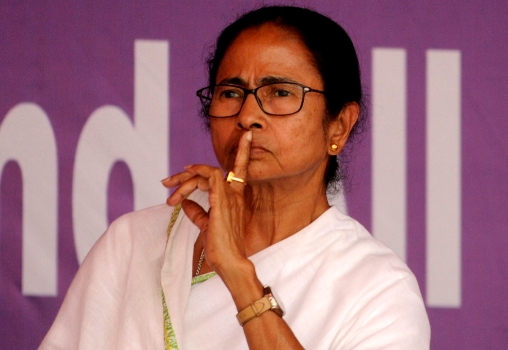
The arrest of Priyanka Sharma by the West Bengal Police for forwarding a meme on the social media again raises the long-standing question- Are the fundamental rights granted to an individual at the mercy of the Government? For now, the West Bengal government’s arbitrary action has affirmed this controversial view that the exercising of fundamental right depends on the whims and fancies of the incumbent Government.
Humour, parody and political satire are an integral part of the freedom of speech and expression enshrined in Article 19 of the Constitution as well as Article 19 of International Covenant on Civil and Political Rights. In the case of Laugh It Off Promotions CC vs South African Breweries, international justice Albie Sachs in the Constitutional court of South Africa asked the question- “Does the law have a sense of humour?” In the Indian context, it does not seem empirical. Way back in 2011, a professor Ambikesh Mohapatra has been sent to jail for making a cartoon of Chief Minister Mamta Banerjee. Thus the debate on the humourist approach of an individual and the individual’s right to freedom came into the central picture.
In the historic judgement of Shreya Singhal vs Union of India, Honourable Supreme Court has invalidated section 66A of the IT Act on account that it has a chilling effect on the freedom of speech and expression. Out of three sections on which the accused(Ambikesh Mohapatra) was charged, section 66A is nonexistent. Section 67 A exclusively applies to sexually explicit pictures and there is nothing sexually offensive about the meme. If we start measuring, every creation by this yardstick, then every cartoonist and political satirist should go behind the bars.
The arbitrary action of the West Bengal Government is against the idea of the rule of law and individual liberty. The debate on the humour and freedom of the speech does not end here; in the larger scenario, it raises the concern of fundamental rights of an individual vs Government’s intervention. In the case of screening of the film Bhobishyoter Bhoot, the Supreme court fined Rs 20 lakh on the Government of West Bengal stating that power of the Government is not supplicant in nature. Culture of open dialogue has great societal importance and humour has a great role in facilitating this culture.
The value of liberty is both the means and the end, unfortunately, Mamta Banerjee forgets this idea and the irony is that she is contesting the General election by cashing in on the issue of defending the constitution. This shows the pseudo-liberal approach towards the Constitution. In the name of defending the Constitution, she is impinging upon the soul of the constitution – the fundamental rights.
The state should understand that the Right To Get Entertained is also a facet of the Right To Life, and drawing pleasure and happiness from a meme is not an offence. By curbing this Mamta Banerjee is becoming a democratically elected dictator who aspires to rule by an iron hand. The people, as well as the representative of the people, will have to realise that it would be very unfortunate if we are incapable of laughing at ourselves every now and then. The strength of our country lies in its diversity and it’s imperative that we are able to revel in our differences and laugh at the idiosyncrasies — real, exaggerated or even imagined — of every community.
The fast pace at which the technology is growing, it also leads to an elevated stress level among the people; humour only helps in releasing that stress. It is just a part and parcel of human life. By asking Priyanka Sharma to tender an apology for uploading the meme, the Supreme Court has failed us as an institution of justice and a harbinger of change. Change is inevitable in the society and humour is natural to the people; both cannot be restricted in a dynamic and growing society.
Political satire through any form of expression, either a cartoon or a meme is not a new phenomenon in the Indian political scenario. It traces its origin back to the poet Abdul Halim Sharar (1860- 1926) who quoted “Humour is to speech what salt is to food.” Hari Shankar Parsai also emphasized on the importance of political humour. He sees this as a means of checking the arbitrary state action. Existence of Awadh punch and the humour in the ancient tradition of India shows the importance of witticism on the Indian soil. Unfortunately, the soil of humour is becoming infertile.
